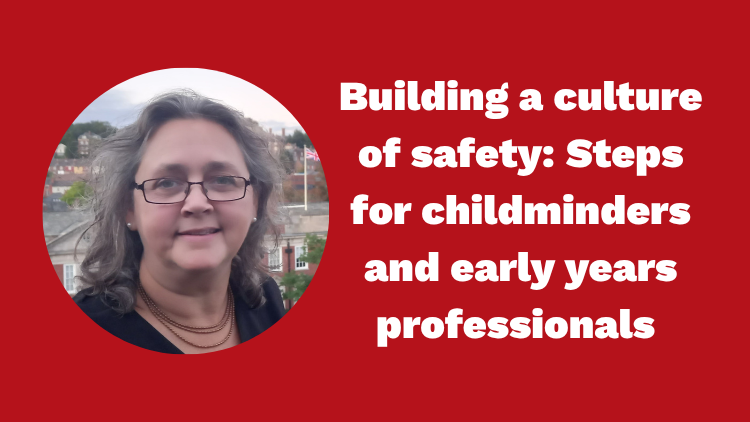When speaking to childminders, particularly those who have been working in the sector for many years we have noticed a growing concern around the amount of paperwork needed when childminding. We have heard things like ‘I feel like I am drowning in paperwork’ or ‘it is paperwork for paperwork’s sake – nobody reads it!’ Some are even worried that this perceived burden is taking valuable time away from the important business of caring for their childminded children or precious family time.
While it is true that the childcare sector is constantly changing, we need to remember that this is primarily for the benefit of the children we care for. As childcare professionals we must always focus on the wellbeing of the children in our care and therefore find a way to manage other areas of our business effectively. This will in turn benefit our business and enable us to run a more professional childcare setting.
As a registered childminder in Wales you will be working to The National Minimum Standards and The Childminding and Daycare Regulations, and will be aware of the CIW inspection framework. The details of how you work to this legislation is up to you and you don’t need to be creating piles of unnecessary paperwork ‘just in case’. Let us consider some key areas.
Partnerships with Parents
Making and maintaining positive relationships with parents/carers is vital as we know, however this does not need to entail endless written ‘evidence’. There are some essentials that you will no doubt already have in place such as written contracts, child record forms, policies, permission forms and medication records. Here are some other ideas you may find useful that show regular communication with carers.
- Daily diaries, planners or daily sheets
- Scrap books
- Notice boards with important information about the setting
- Displaying examples of children’s work and ‘wow’ moments
- A WhatsApp group or a closed Facebook group for parents/carers
- Email updates
- Termly Newsletters
- Scheduled parent’s meetings
- Open days for stay and play sessions
There is further information on partnerships with parents and writing your policies and permission forms on our website.
Remember also that you don’t have to do ALL of the above – just pick ideas you feel will work best for you and the families you work with.
Observation Assessments and Planning
We have noticed in recent times an increased focus by Care Inspectorate Wales (CIW) on planning for children’s learning. It is important to remember that this is for the benefit of the children in your care and not merely an exercise you complete for your inspection. Childminders will as part of their registration understand and follow the principles of the Foundation Phase (as stated in The National Minimum Standards) and will already record and observe each child individually to plan for their next steps to support their learning and development. Linking these observations to The Foundation Phase Profile does not need to be arduous and should ultimately benefit the children.
The main pitfall in this area is comparing yourself to other childminders and how they record observations and planning. What works for some may not work for others and sometimes it may take a little trial and error to find out what is the best system for you.
There is further information in our practice guides Child Observations and Learning Journeys and PACEY host regular Foundation Phase webinars that at free to access for members. A list of webinars available can be found on our website.
Crunching numbers
The financial side of childminding can be daunting for some and trying to submit your tax return at the last minute is stress you could well do with avoiding. Try to keep your accounts up to date by recording them weekly if possible. Use the suggestions listed in the finance hub of MyPACEY and try not to let things slip.
Getting the paperwork right for you
It is important that your records are accurate, up to date and relevant. To assist you with this CIW have produced an inspection guide where they list the documents and information they may require access to during an inspection. This can help you to prioritise your paperwork and focus on what records are actually needed. You are also required to complete an annual quality of care report. CIW have produced a sample template for this which you might find useful. Some further guidance on writing your quality of care report can be found on the PACEY website.
Keeping and storing records
All records should be stored securely whether digitally or in paper form. Guidance on record keeping can be found on our website. Childminders need to register with the Information Commissioner’s Office by law as they handle sensitive data. The UK has updated the Data Protection Act to fall in line with the GDPR. There is more information about GDPR on the Information Commissioner’s Office website or from PACEY.
AND FINALLY…
Remember that this is YOUR business, your pride and joy! You need to be meeting requirements and regulations in order to protect your business. However, the systems you use need to match the way you do things personally and sometimes that changes. We have to move with the times, work as professionals, and embrace change. If you are always focussing on the best outcomes for the children in your care and making your business work for you then you can’t go wrong!



